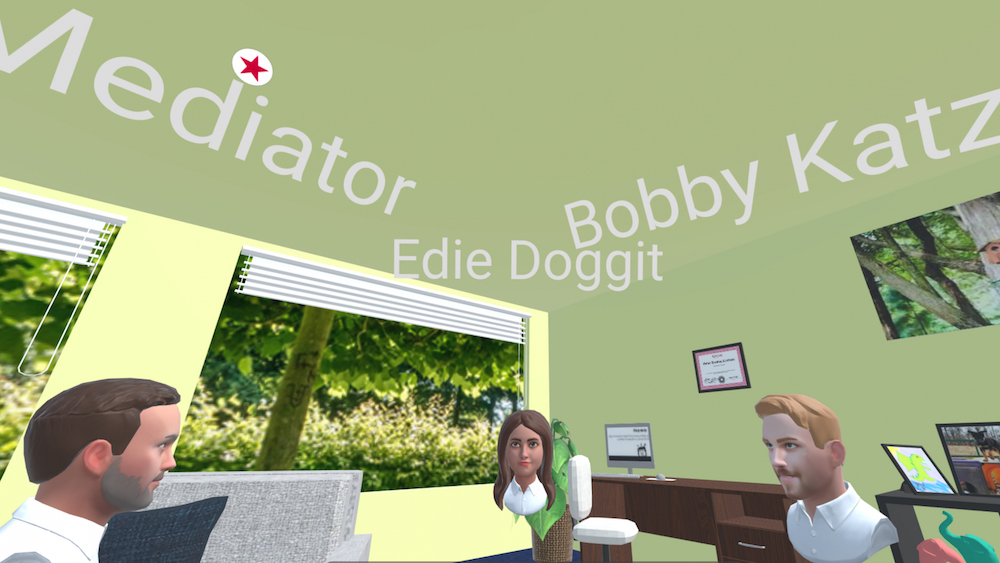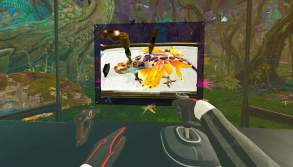To break monotony of remote learning, Rutgers built virtual worlds

As an alternative to video conferencing, developers at Rutgers University have designed new virtual reality environments for students and faculty.
The virtual worlds are designed to allow students to simulate work experiences and put their learning into practice in more realistic environments. Michael Gradin, Rutgers’ assistant director of game research and immersive design, told EdScoop the technology is an alternative to simply having discussions through web-conferencing platforms as students continue learning remotely during the pandemic. The virtual spaces, he said, designed by Rutgers’ game research and immersive design department, allow students to act out scenarios, like therapy sessions for students studying social work or mediation for law students.
“Students and teachers basically have a space that help immerse them in the idea that was going to be taught in the class,” Gradin told EdScoop.
While students in Rutgers’ School of Social Work are using the platform to simulate therapy sessions and practice studying various concepts learned in class, students at at Rutgers Law School in Camden are using the virtual spaces to learn about civil mediation.
Caroline Petrilla, a law professor at Rutgers, is using teaching students about mediation process by allowing them to act out a theoretical neighborhood dispute as they seek a resolution. In a scenario where two neighbors are having an argument about one of the neighbor’s dogs, students are able to work though the conflict as the arguing characters, which allows them to analyze various perceptions and emotions involved in the mediation process.
Gradin said these virtual spaces allow students to be more immersed in their work, while breaking up the fatigue that many students and faculty are feeling as they sit though hours of video conferencing while they attend class remotely.
“It’s important for us that these spaces are also social spaces to let people explore and just have fun,” he said.
The virtual worlds are also being used for student orientation and campus tours, Gradin said. No matter where they are physically located — across the country or living abroad — students can explore campus and interact with orientation leaders thought the virtual platform.
In just three weeks of development, school leaders said, Rutgers’ game research and immersive design developers created a virtual world where students can use their computers or mobile devices to “fly” from campus to campus, while orientation leaders talk about the different buildings on campus and explain the various resources available to students. Students can also interact with the orientation leaders, asking questions through a microphone or chat function.
Gradin said they plan to further develop the platform, including by adding event hosting capabilities and interactive objects so students can participate in labs though a virtual space.
“There’s a lot of possibility here,” Gradin said. “We’re really just still barely touching the surface.”




